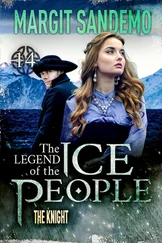The man who had told him about the place had mentioned a small church.
Abandoning an entire church settlement wasn’t something that just happened. But Norway was full of remote settlements, some of which clung to dizzyingly steep hillsides while others lay tucked away in deep valleys. Urbanization, along with the huge migration to America, had left many of these small, lonely places deserted. The forest had crept in and reconquered everything that human civilization had once taken from it.
The overgrown road along the brook was long and steep. Perhaps it wasn’t so strange that people had moved down into the valley. It must have been because of that difficult road.
But it had really been the other explanation that had tickled his imagination and inspired him on that lonely journey.
The legend of a deserted settlement that was haunted.
He had wanted to bring his fiancée with him, but rough hiking wasn’t her cup of tea. Furthermore, all that talk of folk legends frightened her. No, thank you, she preferred the city during the summer months, when the comfortable environment became fresh and exciting as many of the familiar faces disappeared and new ones arrived.
So he had had to set off alone.
But it didn’t bother him so much. Girls could be too talkative, and they were always complaining about something or other.
The landscape seemed to have evened out. Not that he had seen that much of it, because he had mostly been walking through dense forest, but the brook had turned into a calm river and his breathing was no longer so laboured from all the climbing.
Then he burst blindly into the hidden settlement. One moment he was struggling through a spruce thicket – and the next he was looking across an open landscape.
It was rather late in the day, nearly evening in fact. But it was early in the summer, and the daylight lingers for a long time in the countries of the north.
The amateur ethnographer, or archaeologist, or whatever he called himself, stopped in his tracks, spellbound.
The lake was there, but it wasn’t very big. A small mountain tarn is what he would have called it, although the mountains lay farther off in seclusion. And he could just discern the mouth of the river at the other end of the lake. He smiled proudly at the fact that he had been right in his calculations.
“Discern” was the right word, for banks of pallid fog rose from the lake, shrouding the far shore.
But now he understood why the place was known as Fergeoset. The side he was standing on was just stone and bog. It was the bank on the other side that was beautiful, and presumably sunny, which must once have lured people to settle there. But there was only one way to get there. He would have to follow the bank round to the mouth of the river – the route in the other direction was impassable – and hope that there was a boat that would take him across ...
It would be an impossible place to settle down in, he thought. However, he understood the previous generations who had done so. The cluster of houses, which he could just make out over there on the other side, was beautifully set among green fields that ran down to the lake. He could see the remains of a small church emerge through the fog – in fact the church was still pretty much intact – and he caught glimpses of small, grey-black houses that had fallen into ruin. One of them had a second storey, proving that the town couldn’t have been deserted that long ago. This house, the biggest of them all, was gleaming, though its windows were blind and the roof sagged like a swaybacked horse.
Right beside the church he thought he could glimpse a cemetery. And below it a narrow piece of land ran out to a small but hilly islet overgrown with bristling trees, like a circular grove.
Above the lake the fog grew thicker, and it became increasingly hard to discern the settlement.
How wonderfully peaceful it was! The landscape seemed to be resting in wistful memories of days gone by. Although they had lived in great isolation here, it was nevertheless hard to understand why the inhabitants had wanted to leave this little settlement. What had happened there? Had there been an epidemic? Or had it faded away slowly and naturally over the years? Because the young people wanted to go out into the world?
Or was there some truth to the obscure legends about the settlement being haunted? Legends that weren’t so old but had flared up like a nova in the sky, as his friend had related?
No, of course not. He smiled bitterly to himself. Of course it hadn’t been those silly rumours that had brought him here. It had been the thought of exploring a deserted settlement, perhaps making discoveries, perhaps gaining a nice university degree from it.
But how was he to get across to it?
If the worst came to the worst he would have to swim. The water was probably cold, but the river mouth did not seem at all turbulent. There were no tricky currents. He could easily manage it.
He began to walk calmly through the brushwood growing along the bank and discovered the old, barely visible path.
More than halfway along he stopped abruptly. He frowned as he stared towards the mouth of the river. He peered so hard that his eyes grew teary because the fog had grown so dense.
Was there somebody there?
Everything seemed so quiet and dead. Still, he had picked up a movement behind the milky-white floating veil.
His heart began to pound rapidly and hard. What was that sound? A thudding, creaking, rhythmic sound ...
Goodness! It was a boat! Wasn’t there a man in the stern, slowly moving an oar? A ... ferryman?
He couldn’t see clearly. The boat and the man were merely dark shadows in the fog. The village had completely vanished in the haze now: he couldn’t even see the little church tower any more.
But the creaking and the subdued thudding sound of the oars as they hit the sternpost he was able to hear.
Well, at least he could be ferried across.
He hurried forward, shouting “Ahoy!” forgetting all the horrendous stories he had heard about Fergeoset. It would be perfect if he could get across without having to get either himself or his backpack wet.
It wasn’t until he was almost there that the thought struck him.
The deserted village ...
“The ferryman”: wasn’t that precisely what all the legends had mentioned ...?
He never managed to complete the thought. He stared in front of him in disbelief, shouting “No!” – and then he was silent.
Far away, in the southern part of Norway, a fisherman was out early one morning to collect his net. He listened peacefully to the cries of the seabirds echoing in the quiet hour of dawn, to the sound of his oars being dipped into the water with a soft splash and dripping off when he lifted them again. It was the best time of day, when he didn’t have to think about the animals in the barn or about the money he didn’t have enough of to sustain his big family. He was free here. That was why he never wanted to have a helper, even though it would have unburdened him a little.
But he could easily draw in the nets by himself!
His eyes travelled along the clumps of rushes in the lake. The swans’ eggs must have hatched by now, so he had to be careful not to row too close to the nest. He had great respect for the pair of swans, which would come rushing out, hissing, their heads bent and their wings stretched out.
He rested against the oars. What was that lying there among the rushes? There were no rocks there normally! And now it was moving very slightly, rocking back and forth in the little waves that the boat created in the water.
The fisherman carefully rowed closer, feeling a knot in his stomach.
He didn’t go too close. For it was what he had feared it might be. His arm muscles immediately began to work, steering the boat away from the spot, back to shore, to other people!
Читать дальше












